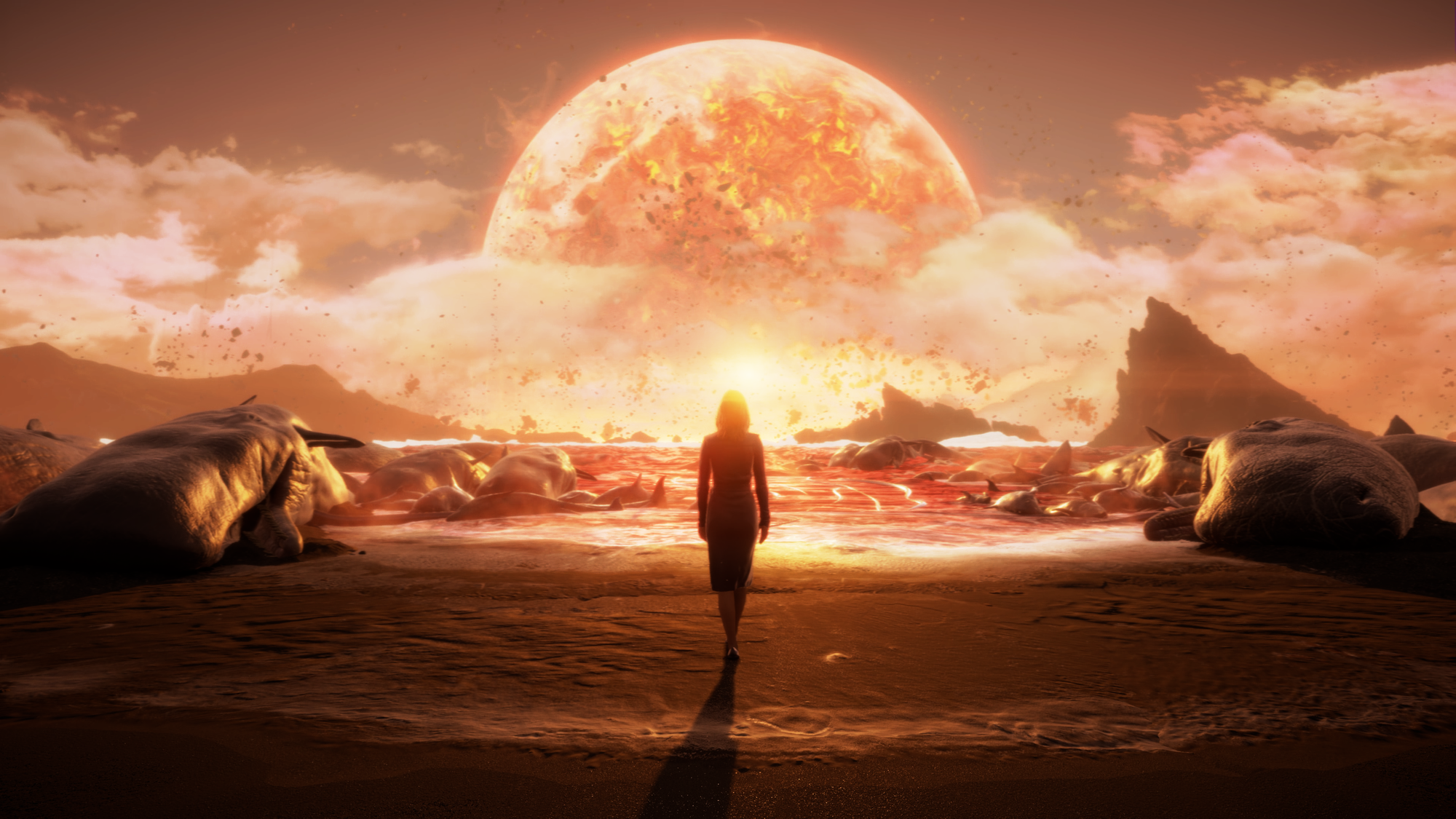Why I'm Still Playing Death Stranding Offline
Is Kojima's social strand vision at odds with the game's otherwise isolationist approach to world building?

Death Stranding is the 2019 gaming release from one of the sector’s best-known auteurs, Hideo Kojima. Described by The Guardian as “2001, The Road, The Leftovers, Silent Hill and Planet Earth reinterpreted as three days of UPS contract work” it’s a post-apocalyptic third-person exploration adventure focusing on the importance of connection.
Much has been made of the game’s Social Strand system, whereby players can indirectly interact with one-another through leaving signs, structures, messages and likes throughout the player’s journey and explorations.
It’s a ground-breaking approach to cooperative or collaborative gaming (whichever term you prefer) that, while sharing some similarities with Demon's Souls, takes a very different perspective.
While never actively seeing or speaking to one another, players can collaborate to build large structures like roads and shelters. Doing so makes traversing the long and arduous distances that much faster.

It’s an approach that also encourages players to give as much as they take or benefit from the generosity and benevolence of others. Leaving a useful item, contributing to large structures like roads or building a well-placed bridge can earn players likes. This in turn boosts their connection within the game.
While Death Stranding as a whole continue to prove divisive to say the least, this element of the game is one where gamers and critics alike have been almost unanimous in their praise. This should come as no surprise. Kojima himself stated how the theme of connection — and re-connection — is central to the game's premise; a laudable aim for any title to have.
While still making offline mode available, Kojima said he “really wouldn’t recommend it”. His argument was that in playing offline “You completely lose the support of other players, and it becomes an entirely standalone, single-player experience.” Playing offline was clearly not what he intended.
It would be remiss of me to argue with the man who created the game. However, I couldn’t help but feel everyone — including Kojima — is missing the point somewhat. This is, after all, a story about a single man going it alone to reconnect the United States; not about an individual saving the United States with a bunch of help from a community of people he doesn’t know.
Alone in the world
There aren’t many game worlds you can enter that aren’t packed full of content to discover and explore. In the majority of titles, NPCs and enemies are scattered liberally to ensure players don’t have too much downtime and lose interest. And for me, it’s their relative absence that makes Death Stranding so appealing.
In the wilfully slow pace of the game (especially its earliest stages), players are afforded abundant space and time. Time to mull over what you have learnt about the world so far; its story, context and characters. Time to enjoy the beautiful, barren landscapes. You’re not swept along by a fast-paced linear narrative throwing challenge after set piece your way. Instead, you're given space to work out what you want to do and how.
Of course, there is a story. Arguably the game suffers most from criticisms of repetitiveness once a player steps away from the main storyline to focus on side delivery missions. But even at its most direct, where interactions with enemies and NPCs are more frequent and help to drive the narrative, there remains an overwhelming sense of your isolation in this world.

For me, this is crucial. We live in an unavoidably hyper-connected world, where the internet is ubiquitous and omnipresent. It's as true for the real world as it is for gaming. Titles are now frequently stacked with online features, with the onus often more on the online multiplayer experience than the core game itself. There's nothing inherently wrong with this. Multiplayer is almost as old as gaming itself, after all and the success of GTA Online shows there's certainly appetite for it.
In the case of Death Stranding, playing the game online as it was intended also has the benefit of making the game easier. Roads markedly upgrade your ability to traverse the landscape and players you're connected to can pop up to provide some much-needed assistance during BT battles.
But for me, it more noticeably introduced a host of alerts and alarms into the otherwise serene environment. Flags peppered the surface, crowding key locations in a stream of notifications I neither wanted nor asked for. These are the technological features of our daily lives I am trying to escape from, and the opposite of what appealed so much about this gaming experience.
Perhaps in the full course of time the innovation of the online Strand feature will be the lasting legacy of Death Stranding. But for me, the real fulfilment comes with the opportunity to immerse myself in an experience that allows you to embrace isolation, to lean into it. One that simply allows you to be alone in the world until you're ready to re-connect again.